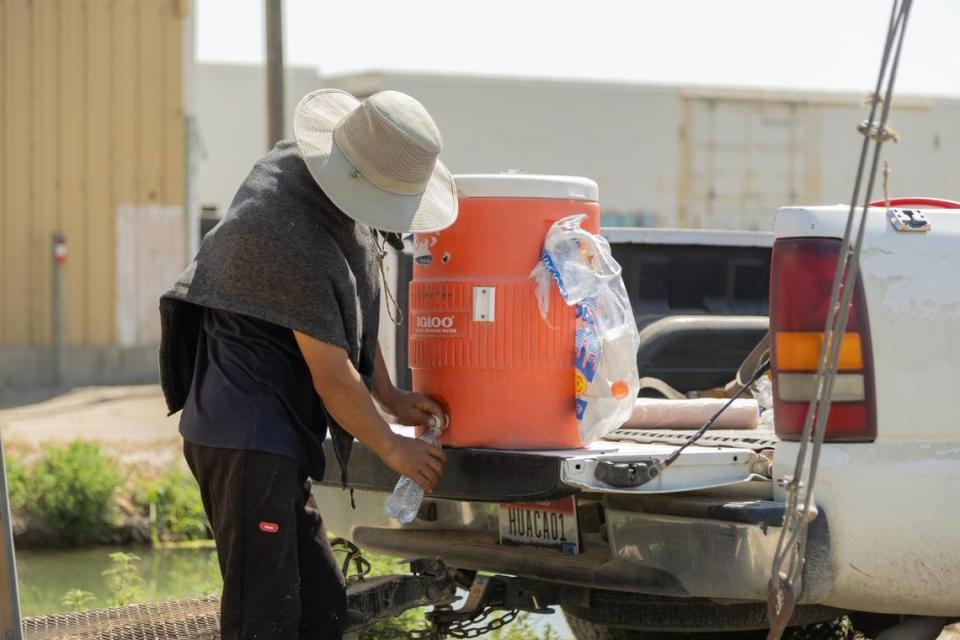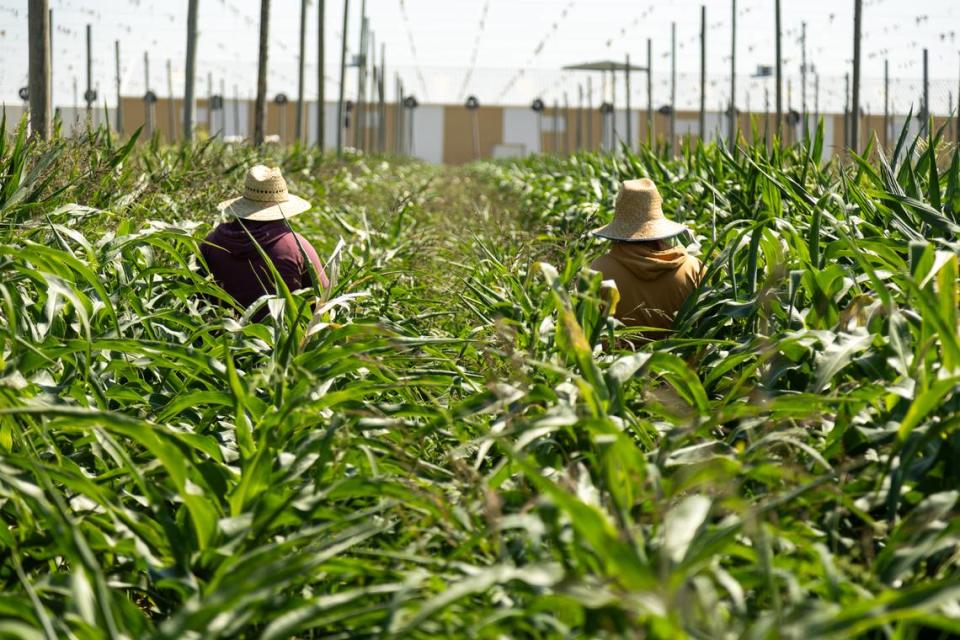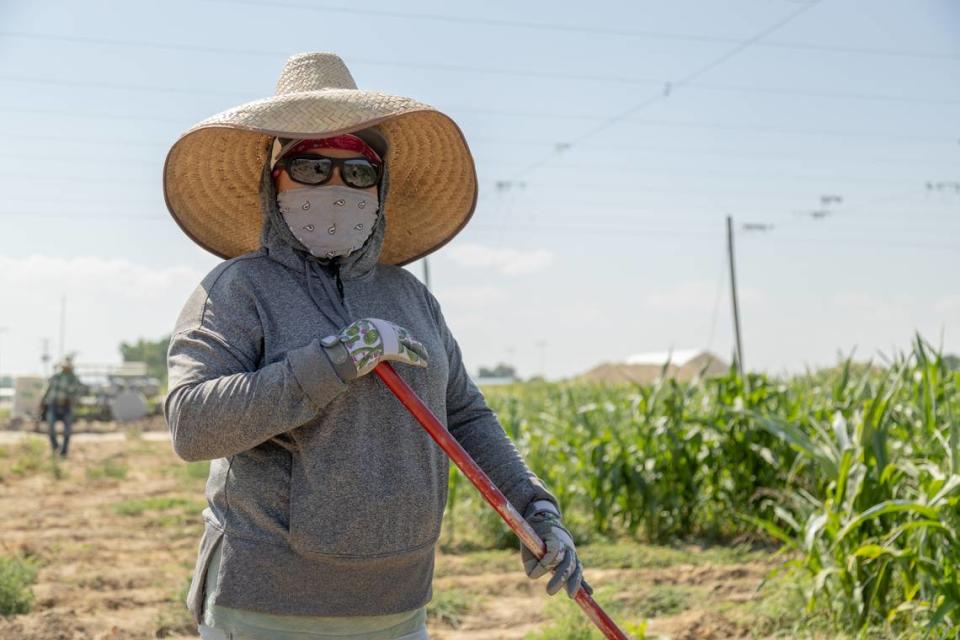When extreme heat hits Idaho, farmworkers struggle. What protections do they have?
For 11 hours a day, five days a week, Efrocina Martinez, 48, and her daughter Maria Santiago, 16, pick husks of corn under the scorching summer sun west of Caldwell in Wilder. They work full-time at $15 an hour with a group of 40 other farmworkers. They travel to different squares in the Wilder area, tending to the corn, hops and other crops.
Idaho farmworkers for the past two months have been working at least five days a week, often 12 hours a day, in heat that often hit triple digits. They endure long hours, are exposed to the elements and have little to no government protection. The Boise area saw an average of 92.7 degrees in the month of July.
Last summer, during record-breaking temperatures in Boise, Martinez nearly fainted while working in Wilder, she said. But when her manager brought her a drink, “I started to feel better and went straight back to work.”
“We become strong and we deal with it,” Martinez told the Idaho Statesman. “We fall down, and we keep getting up.”
In the past year, California and neighboring states in the West — Oregon and Washington — have passed laws to protect farmworkers from the heat as the summers face more extreme temperatures. The three states have different trigger temperatures for implementing mandated rest schedules, with California’s activating at 95 degrees and both Washington and Oregon rules activating at 90 degrees.
But in Idaho, no such state laws exist.
The federal Occupational Safety and Health Act provides recommendations on how to manage heat and signs of heat illness. U.S. employers are required to follow standards for field sanitation set by OSHA. Those standards mandate the provision of toilets, potable drinking water and hand-washing facilities for workers.
“The only rules in place for Idaho workers are the minimum set by the federal government, and the federal government currently does not have heat protection standards for workers,” said Elizabeth Strater, a spokesperson for United Farm Workers, a national advocacy group.

Idaho lawmakers currently have no plans for bills that would protect farmworkers from heat, said Sen. Jim Guthrie, a six-term McCammon Republican. He said he believes that it’s the individuals’ responsibility to protect themselves.
“I think we all want to see everybody be as safe as they can be. But there’s also a level of, how much regulation is too much regulation?” Guthrie told the Statesman. “If you take 15 minutes for every hour, that’s a 25% increase in somebody’s wages or a 25% loss in productivity for the business owner.”
Immigrants need protection, Idaho farmworkers say
Martinez has been working in agriculture for the past 25 years. Santiago, who was born in the U.S., said that her earliest memories were working in these fields began when she was around 4 or 5 years old.
“We didn’t really have babysitters or any of that,” Santiago told the Statesman.

Martinez, who immigrated from Mexico and became a permanent resident of the U.S., emphasized the need to protect all individuals, regardless of their immigration status of the worker in the United States. But farmworkers can’t wait for these laws to change, she added, and they need the money.
Santiago said farmworkers don’t get the appreciation they deserve, nor do they get the protections that they need.
“I feel like the state of Idaho is not really on their side,” Santiago told the Statesman. “It can get really hot here, and we really haven’t seen any changes.”
Nonprofits help essential workers
The Idaho Organization of Resource Council has been raising money for their heat and smoke relief fund to purchase supplies for farmworkers, including cold water, Gatorade, sunscreen, and other items that can help alleviate the effects of heat. Irene Ruiz, executive director for the IORC, said the fundraiser began to help the farmworker community in 2021, when a worker died in Oregon because of the heat.
Maria Mendoza, 46, who supervises Martinez and Santiago’s group, has been working as a farmworker in the Wilder area for the past 18 years. Mendoza frequently provides a 5-gallon water jug for workers to access drinking water and a cooler filled with ice to keep their water bottles cold.
Libertad Sanchez, 46, Mendoza’s assistant, told the Statesman they care for each other when working in the fields. She said Mendoza ensures that workers always have cold water or bottles of water with them.

Looking ahead, even if temperatures get hotter, Mendoza said she would still work in these fields.
“We do love our work, as it gives us a sense of freedom,” Mendoza said. “We are outside, and we get to work with each other.”

